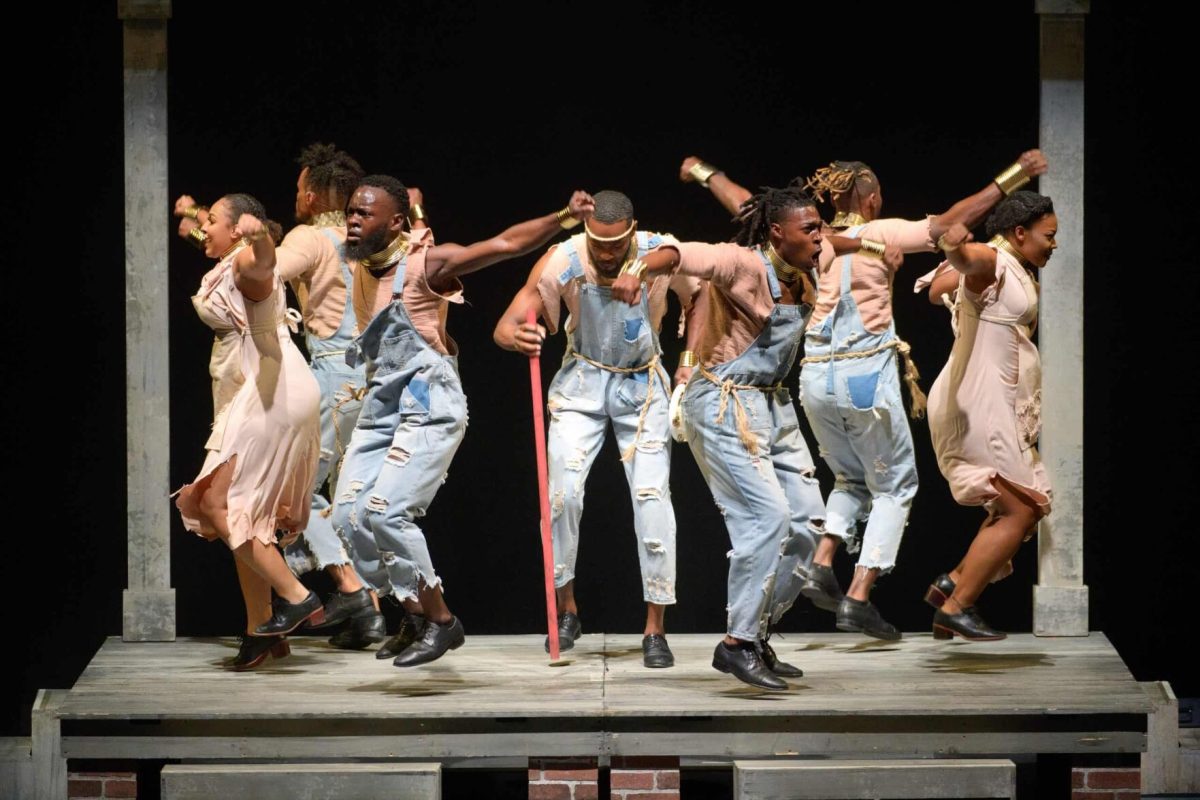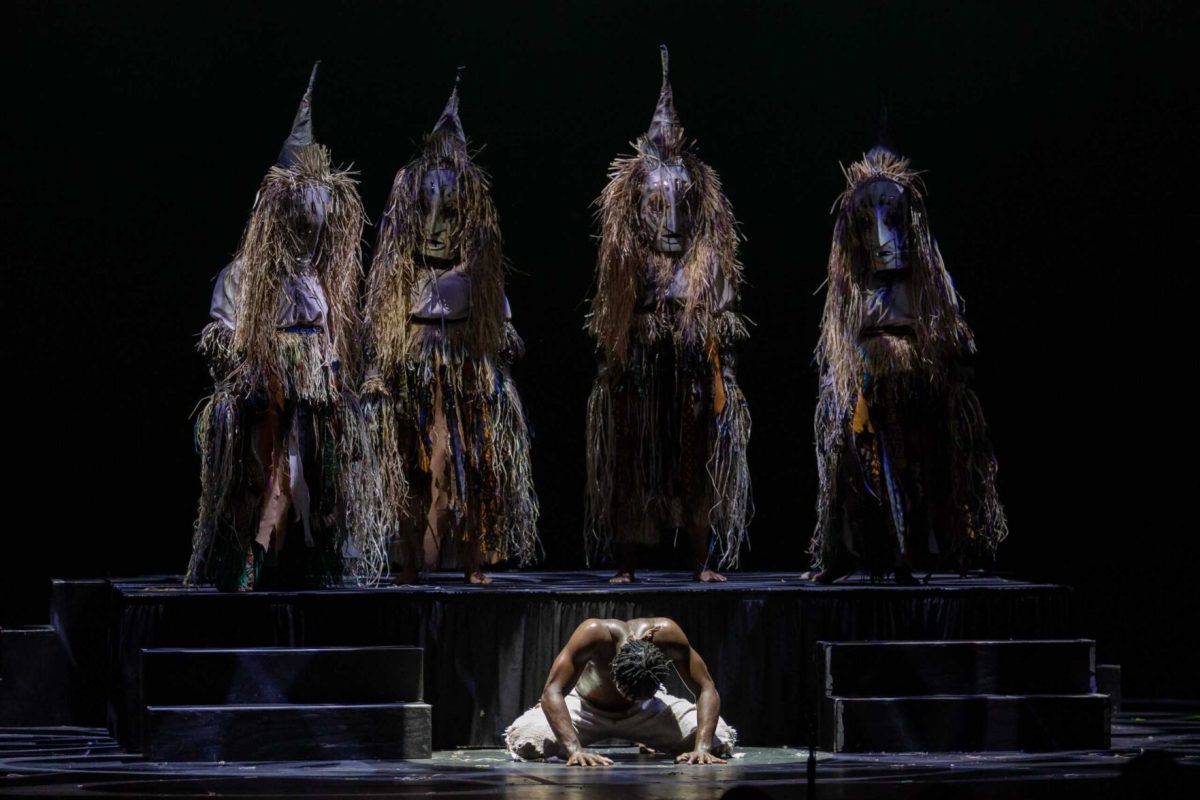On Thursday, Sept. 22, the professional step dance company Step Afrika! moved the audience with their show “Drumfolk” in the Bellamy Theater at the Brooks Center for the Performing Arts on Clemson University’s campus.
Step Afrika! is the first professional dance company dedicated to the art of step dance, according to their website. The company was founded in 1944 by C. Brian Williams, and combines stepping, traditional African dance and many other percussive dance styles to create a cultural and visceral experience for audiences in more than 60 countries across the globe.
Their performance of “Drumfolk” at Clemson consisted of five pieces, with a twenty-minute intermission after the third number. The show recounts the Stono Rebellion of 1739 and the subsequent Negro Act of 1740.
The Stono Rebellion, which took place in Clemson’s home state of South Carolina, was led by 20 enslaved Africans and ended in one of the bloodiest revolts of its nature in all of North America. The British government, in retaliation, passed the Negro Act of 1740, declaring the drum as an illegal weapon, among many other restrictions on the rights of Africans.
Beginning with a moving introduction, the first piece, “Drumfolk20,” included the styles of body percussion used by Africans when their drums were stolen from them. With the repeated motif, “They took the drums away… but they could not stop the beat,” the company showcased this story of resilience through ring shout, tap, hambone and stepping, all of which were developed to be used in place of the drum.
A well-timed beat drop in the first act caught the audience off guard. The crowd, captivated by the historical tribute to traditional African styles, erupted with excitement as the lights and music transformed into a more modern street-style, and members of the company began rapping as they danced. The entire show was enthralling and never settled into repetition or monotonous rhythm.
“In the Wilderness” and “Stono” finished the first act of the performance. Each of these pieces blended modern and contemporary dance into the show. These were tearjerkers, with emotional solos and expert storytelling on behalf of the dancers. Where the audience had been happily clapping along, these numbers had the room in focused silence.
The latter half of the show was incredibly fun. The energy was high and the majority of the company was on stage together. The room was electric. A large portion of this part of the performance was solely step and body percussion, with no, or very minimal, contribution from their live musicians. Instead, beatboxing and vocal performances backed the dancers.
A particularly cathartic inclusion was the reading from the Negro Act of 1740 given by the male members of the company. The pointed comedy of the excerpt and the minimalist choreography felt like watching a satirical cartoon on stage.
The final number, “Free,” reintroduces the drum and other percussive instruments for a complete celebration of African history. The company’s directors joined them on stage at the end of the final bows for an interactive game with the audience and a final encore performance. As for how to end a show, this was a master class.
Alongside the performance, Step Afrika! held many other events for the show around the Clemson community, offering master classes not only to the performing arts students in the Brooks Center, but also to community groups outside of campus.
Step Afrika! continues its touring season in Burlington, Vermont, on Sept. 28, and will be traveling to many more states in the future. For those who missed the Brooks Center performance, “Drumfolk” is a must-see, and for those who did make it, a must-see, again.
“In the Wilderness” and “Stono” finished the first act of the performance. These were tear-jerkers, with emotional solos and expert storytelling on behalf of the dancers.















